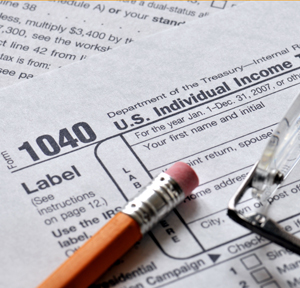Tax
Tax On Wealthy Remains Hot Global Issue After Obama Speech

Shrugging off "class warfare" charges, Barack Obama has told lawmakers that the wealthiest citizens must pay more tax, as major economies continue to impose higher rates on the wealthy to cope with budget shortfalls.
Taxation of the wealthiest earners in the US continued to be a hot-button political issue in the looming battle for the White House when president Barack Obama called on Congress to embrace a plan to make millionaires pay at least 30 per cent in taxes.
Obama, delivering his State of the Union address yesterday, urged lawmakers to adopt billionaire investor Warren Buffett’s idea for making those earning $1 million or more pay almost a third in taxes. Buffett has claimed – to some disbelief from his critics – that he pays less tax in percentage terms than his secretary.
The issue of taxes on the wealthy is not merely a US issue. In Europe, governments such as those of Spain, Italy, France and the UK have imposed higher rates of tax on high earners in recent years. In the UK, however, the Conservative/Liberal Democrat government has hinted it may seek to remove the top income tax rate of 50 per cent at some stage, although the timing of this is politically sensitive.
Among the Republicans vying for the spot to challenge Obama in November, former Bain private equity executive Mitt Romney has come under fire for his allegedly putting some of his earnings offshore. In media reports yesterday, it was claimed that Romney, with a net worth estimated at up to $250 million, once had a Swiss bank account but it was shut in 2010.
Taxation of the wealthy, while sometimes a subject in US politics at times, has become a more sensitive issue recently since the massive bailouts of Wall Street banks by the taxpayer, raising complaints even from pro-market think tanks and commentators that the super-rich have benefited unfairly in certain economic sectors. Against that, critics claim that some of the statistics used by the likes of Buffett are misleading and that the bulk of high earners pay more than a third of earnings in taxes and a disproportionately high share of the total tax base. According to the Congressional Budget Office, the 10 per cent of households with the highest incomes pay more than half of all federal taxes. It is also argued that taxing the “rich” will not make much of a dent in the country’s huge debt pile unless spending is cut dramatically.
And US politics has also seen a rise in focus on the use of offshore accounts by wealthy Americans, such as via Swiss bank accounts. A number of banks, such as UBS, no longer provide offshore banking to US clients as a result.
Class warfare?
“You can call this class warfare all you want,” Obama told Congress. “But asking a billionaire to pay at least as much as his secretary in taxes? Most Americans would call that common sense,” he said. “Because of loopholes and shelters in the tax code, a quarter of all millionaires pay lower tax rates than millions of middle-class households,” Obama said. “Right now, Warren Buffett pays a lower tax rate than his secretary.”
What is known as the “Buffett rule” followed a newspaper article in which the legendary investor – and Democrat supporter – said he paid a lower tax rate - 17.4 per cent - than “any of the other 20 people in our office.”